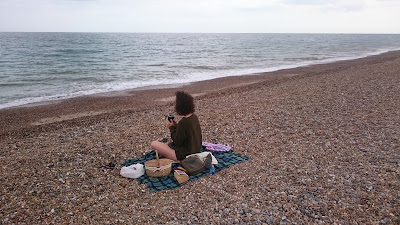Does a Dog Know That He is A Dog
It
is not sin to be born as a dog, but it is a sin to be born as a street dog. You
don’t realise you are a dog unless you are born as a street dog. Street dog is
the real dog. He is ugly and unwashed, hungry and half-dead, barking for no
reason and occasionally fights with dogs of other street. Higher breeds of dogs
are the alter ego of their masters. Their life as artificial as their masters.
They always look at the masters for command and for ‘reward and punishment’.
Thanks to Pavlov. However, what Pavlov overlooked the fact that the dog's mind
has very limited capacity to associate things with the sense of hearing. He can
smell the food from a far distance. He can even read your thoughts of giving
him food.
The
dog is definitely more apt at handling emotions. He knows how exactly you are
feeling. You cannot hide your emotions from him. However, he prefers to ignore
your worry and anxiety since he knows them to be baseless. He responds to
authoritative commands that's why superior breeds are happy with military
officers and hunters. The dog has extraordinary power to detect frequencies.
Light, heat and sound all are frequency . He has a powerful sense of smell.
With
so many qualities, one may wonder if the dog knows that he is a dog.
This
is a Zen question- Does a dog have Buddha nature? If he has Buddha nature, it
can attain self realisation . To attain self realisation he must know his
present status of being a dog. The morale of the Zen story is a dog does have
the potential to become enlightened, but only in the human realm. Therefore,
what should a dog do to come in the human realm? You must have seen some dogs
always follow sages and monks, or sit around the religious places. The smell of
incense causes desire in them to be born as human being and achieve
Nirvana.
Whenever
I climb, I am followed by a dog called 'Ego'. Friedrich Nietzsche has compared
ego with the dog. The dog is as inseparable from the human psyche as ego. The
only difference is a man is governed by his ego, and the dog is governed by his
master. Nietzsche climbs high, on the path of enlightenment, where the biggest
hurdle is ego. The ego is obstinate like a dog. A dog will climb with the master;
he will not wait for the permission. In Hindu mythological story of Mahabharata
at the end, a dog followed Pandavas who climbed the Himalayas.
W.
B. Yeats has old compared the old age with Dog's tail
What
shall I do with this absurdity-
O
heart, O troubled heart-this caricature,
Decrepit
age that has been tied to me
As
to be Dog's tail?
“Life is life - whether in a cat, or dog or
man. There is no difference there between a cat or a man. The idea of
difference is a human conception for man's own advantage.” ~Aurobindo. Man
thinks himself superior to the dog only because he can abuse the power. If the
dogs would have been ruling the world, they may not find the man a trustworthy
friend.
Every
dog has its day, but every man does not have his day.
In
a novel “Notes from the underground” the girl gave the bourgeois name to her
pet dog to show her contempt to bourgeois class. In “Disgrace” by J. M.
Coetzee, David the expelled Professor at University visits a slaughterhouse
daily to find about a weak, skinny dog who was crippled by one leg. How does it
feel to be a dog in this world? Crippled dog was helpless and deprived of any
rights or pride. His life is full of shame and disgrace. Death is a solution
for such a disgraceful life.
How
many legs does a dog have if you call his tail a leg? Four. Saying that a tail
is a leg doesn't make it a leg. ~Abraham Lincoln. Any presumption about the dog
will fail.
Whenever
possible, replace humans with dog. Mark Haddon in his book ''The curious
incident of dog at midnight'' says ''Also dogs are faithful and they do not
tell lies because they cannot talk."
Dogs
understand a man better than man understands the dog. Every dog deserves to
live a dog’s life. He must be allowed to live like a dog.
Letters
to CC:
Read
more articles here
©
Vipin Behari Goyal



